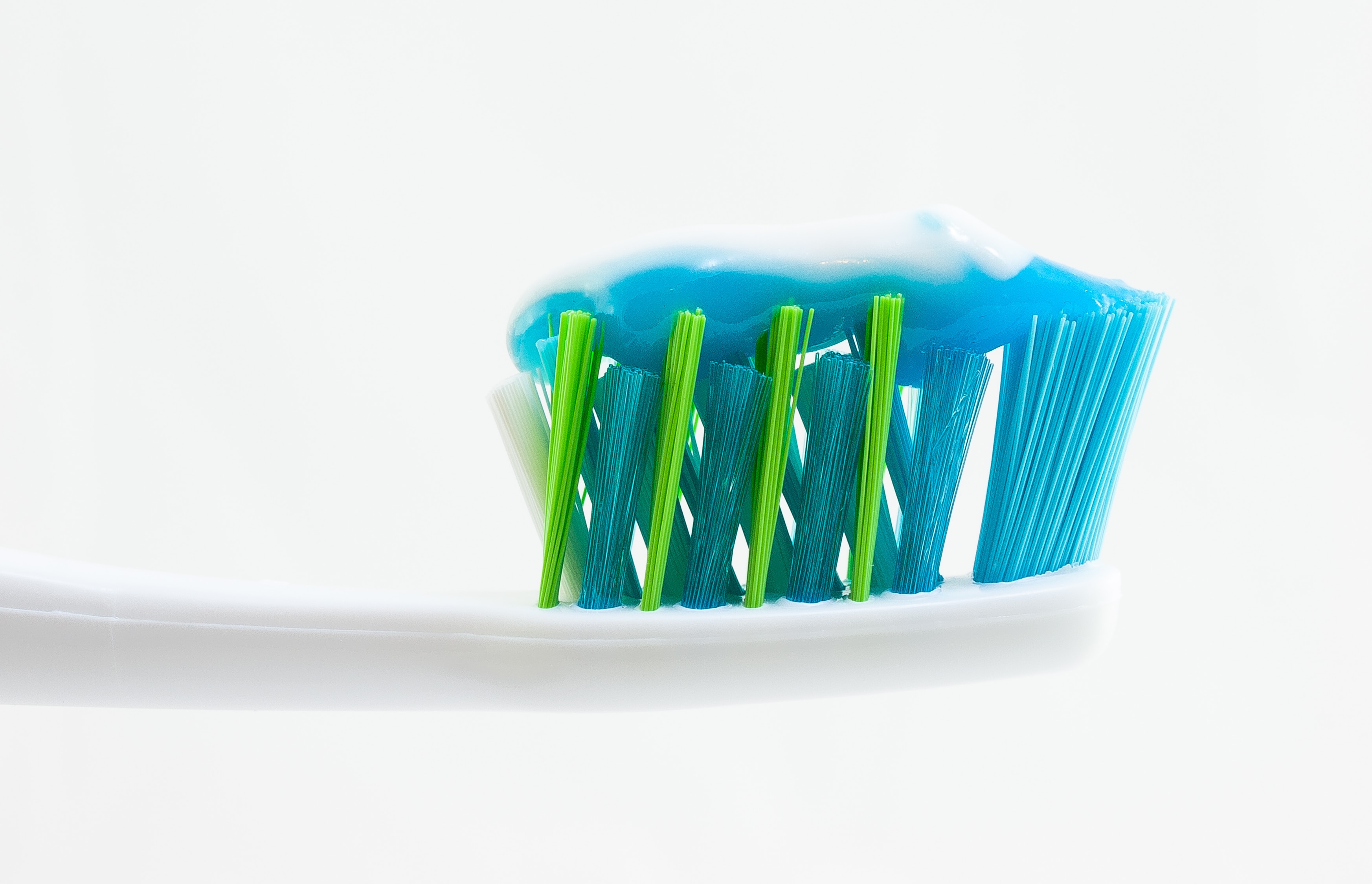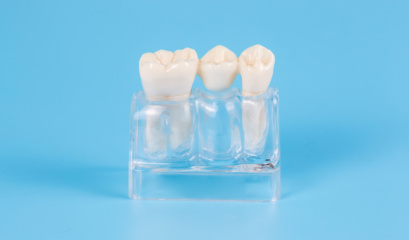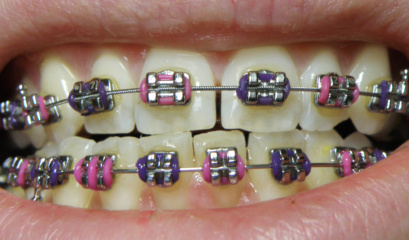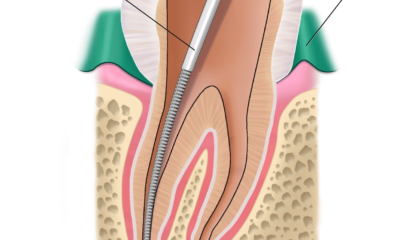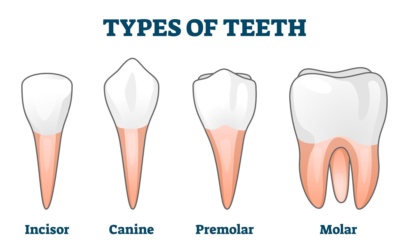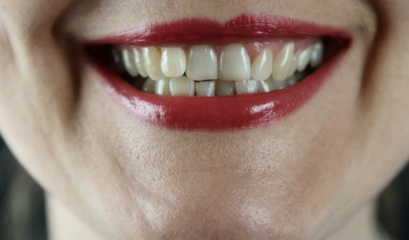In this article we answer the question “what is fluoride?”, and more. Let’s take a closer look at this fascinating mineral!
In oral health care, the topic of fluoride is one that frequently surfaces. This naturally occurring mineral is found in many of our daily use products, from the water we drink to the toothpaste we use. Despite its ubiquitous presence, the specifics of what fluoride is, its role in dental health, and its potential effects are often shrouded in uncertainty. This blog aims to illuminate these aspects, providing clear and comprehensive insights into the world of fluoride.
What is fluoride?
Fluoride is a mineral that naturally exists in various parts of our environment. It’s found in the Earth’s crust, in the air we breathe, in certain foods such as fish and tea, and even in our water resources. While fluoride’s existence is as old as the planet itself, its critical role in dental health was only discovered in the 20th century.
In the field of dentistry, fluoride is viewed as a protective agent against tooth decay and cavities. It is incorporated into a broad range of oral health products – from toothpaste and mouthwashes to professional dental treatments. For instance, most toothpaste brands that you’d find at your local grocery store, such as Colgate or Sensodyne, contain fluoride as a key ingredient.
Is fluoride good for teeth?
Countless studies affirm the beneficial role of fluoride in dental health. Fluoride’s primary function is to aid in the remineralisation of tooth enamel, the tough outer layer that protects your teeth from decay. Consuming acidic foods and drinks, like your favourite orange juice or that occasional soft drink, can cause the enamel to weaken over time. Fluoride steps in to aid the repair process, helping to strengthen the enamel and reverse early signs of tooth decay.
Furthermore, fluoride creates a more decay-resistant tooth structure, disrupting the process that leads to cavity formation. It does this by reducing the ability of plaque bacteria to produce acid, the main factor contributing to cavities.
Fluoride treatments provided by dental professionals during routine check-ups offer an added layer of protection. These treatments involve applying a high concentration of fluoride to the teeth, often in the form of a gel, foam, or varnish. For those who are prone to cavities or have a history of dental decay, these treatments can be particularly beneficial.
The controversy: is fluoride toxic?
Despite fluoride’s proven benefits in dental health, its usage has sparked some controversy, primarily centred around the issue of potential toxicity. Like any substance, fluoride can have harmful effects if taken in excessive amounts. Overconsumption, particularly in children, can lead to a condition known as dental fluorosis. This condition typically presents as faint white lines or streaks on the teeth, but in severe cases, it can cause discoloration or pitting.
The levels of fluoride found in regular dental products and fluoridated water are safe for the majority of individuals. The risk arises when fluoride is ingested in large amounts consistently. For instance, swallowing toothpaste regularly can contribute to an excessive intake of fluoride.
Some people may be more sensitive to fluoride or may have specific health conditions requiring them to limit their fluoride intake. In these situations, fluoride-free alternatives, like Tom’s of Maine or Dr. Bronner’s toothpastes can be considered. It is essential to consult with a dental or health care professional to determine the best approach based on individual needs and circumstances.
Fluoride in toothpaste: the pros and cons
Toothpaste is a daily-use product that often contains fluoride as an active ingredient. Fluoride toothpastes have been the standard for many decades because of the recognised dental health benefits of fluoride. But is it all good news? Let’s delve into the pros and cons of fluoride toothpaste.
Benefits of fluoride toothpaste
The primary advantage of using fluoride toothpaste is its role in preventing tooth decay. As previously mentioned, fluoride helps remineralise tooth enamel, making it more resistant to decay. This function is especially crucial considering our diets often contain sugars and acids that bacteria in our mouths feed on, producing plaque. Fluoride inhibits the acid production of these bacteria, thereby reducing the risk of cavities.
Another benefit is that fluoride toothpaste is particularly helpful for those at a high risk of developing dental cavities. These may include individuals with dry mouth conditions, gum disease, or a history of frequent cavities.
Potential side effects of fluoride toothpaste
Despite the benefits, there are potential side effects of using fluoride toothpaste that we should be aware of. As discussed earlier, an excessive intake of fluoride can lead to dental fluorosis. This is generally a concern for young children who haven’t yet developed good brushing habits and may swallow toothpaste instead of spitting it out.
In rare cases, people might develop an allergic reaction to fluoride, although this is quite uncommon. If you experience any adverse reactions such as rash, swelling, severe dizziness, or trouble breathing, it’s essential to seek immediate medical attention.
Another concern around fluoride toothpaste revolves around its environmental impact. Some research suggests that fluoride can accumulate in the environment, potentially affecting plants and wildlife.
Toothpaste without fluoride
Considering these concerns, some people might choose to opt for fluoride-free toothpaste. However, it’s important to note that while these options might alleviate concerns about overexposure to fluoride, they do not offer the same level of protection against cavities.
When choosing your toothpaste, it’s essential to weigh the benefits and potential risks. If you have any concerns, it’s always a good idea to consult with a dental professional who can provide guidance based on your specific dental health needs and circumstances.
Types of fluoride
Fluoride, in its various forms, plays a pivotal role in the field of dentistry. It is found in a variety of oral care products and water fluoridation treatments. The three primary types of fluoride used in dentistry are: sodium fluoride, stannous fluoride, and acidulated phosphate fluoride.
1. Sodium Fluoride (NaF)
Sodium fluoride is a common type of fluoride found in various dental products, including toothpaste, mouthwash, and professional fluoride treatments. Its popularity stems from its proven effectiveness in remineralising enamel and preventing tooth decay.
2. Stannous Fluoride (SnF2)
Stannous fluoride is another type of fluoride often used in dental products. It provides similar benefits to sodium fluoride but with an added antibacterial effect, making it an excellent choice for individuals suffering from both cavities and gum disease.
Several toothpaste brands, such as Crest Pro-Health and Sensodyne, utilise stannous fluoride as their primary active ingredient. The use of stannous fluoride can potentially help mitigate common dental issues like gingivitis, plaque, and tooth sensitivity.
3. Acidulated Phosphate Fluoride (APF)
Acidulated phosphate fluoride, often used in professional dental treatments, is known for its rapid fluoride uptake. This means that it quickly delivers fluoride to the tooth enamel, enhancing the teeth’s resistance to decay.
APF is typically used in the gel or foam form during a professional fluoride treatment. This fluoride variant is acidic, enhancing the fluoride uptake but possibly leading to slight enamel etching if overused.
Make an informed decision about fluoride
The science-backed benefits of fluoride in preventing tooth decay are well established. From toothpaste to water supplies, fluoride plays a crucial role in maintaining oral health at the population level.
However, as with any substance, overexposure to fluoride can lead to adverse effects. It’s important to use fluoride products as directed and supervise young children to ensure they do not swallow toothpaste or other products containing fluoride.
In some cases, individuals might have specific health concerns or personal preferences that lead them to seek fluoride-free alternatives. If you’re considering this path, it’s essential to discuss it with a dental professional. Contact Knight Street Dentists if you’re in the Shepparton and are looking for advice tailored to your individual circumstances and offer strategies to protect your oral health effectively.



